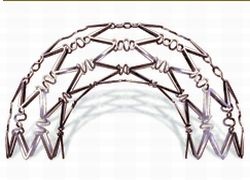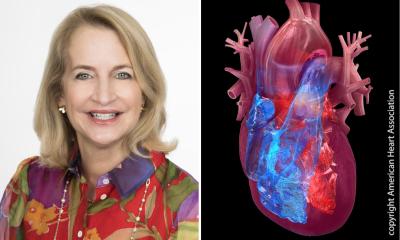E-SIRIUS Trial: Safety and efficacy of drug-eluting stents
Cordis Corporations' CYPHER stent is a Sirolimus-eluting coronary stent used for treatment of patients with coronary artery disease. The five-year results of the E-Sirius Trial show that in comparison to bare metal stents the CYPHER stent offers sustained clinical benefits.

The E-SIRIUS trial compares restenosis rates between the CYPHER stent and bare metal stents. It is a double blind, multi-center, controlled, randomized trial, involving 352 moderate to high-risk patients from 35 European clinical centers.
Five-year follow-up results, which were presented at the ESC Congress 2007 in Vienna, show that only 5.1 percent of the patients treated with CYPHER require a Reintervention in the same arterial area, while as much as 20.9 percent of the patients with an implanted bare metal stent required such therapy. A difference of nearly 76% proving the clinical benefits of the drug-eluting stent.
"The five-year results of the E-SIRIUS Trial increase our knowledge and understanding of the clinical benefits of the CYPHER stent for patients with coronary artery disease," explains Erik Jørgensen, M.D., from The Heart Centre, University Hospital Rigshospitalet, Copenhagen, Denmark.
So higher initial procedural costs for drug-eluting stents seem to be compensated by lower costs during follow-up. For matters of long-term safety the trial results reveal nearly similar rates of myocardial infarction (CYPHER 7.4%; bare metal stent 5.1%) and mortality (CYPHER 8.6%; bare metal stent 7.9%), as well as no difference between the rates of stent thrombosis.
"The results reaffirm the long-term clinical benefits of the CYPHER stent compared to bare metal stents," concludes E. Kandzari, M.D., F.A.C.C., F.S.C.A.I., Chief Medical Officer, Cordis Corporation. Cordis Corporation also manufactures the CYPHERSELECT and CYPHERSELECT Plus, next versions of sirolimus-eluting stents.
10.09.2007





